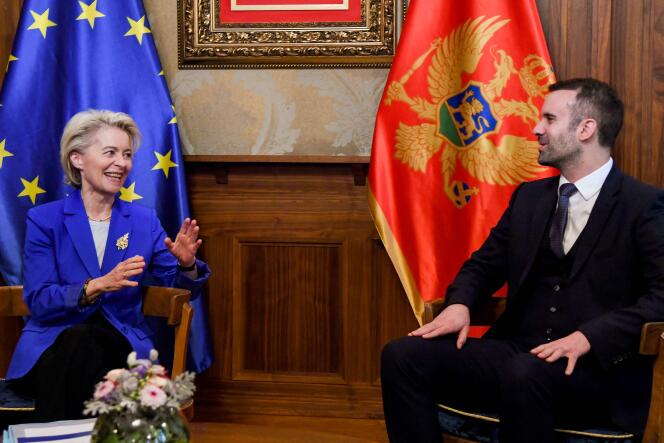


The new prime minister of Montenegro, Milojko Spajic, wants to transform his small country, until now best known for its fearsome mafias, into "the Switzerland of the Balkans" and "the Singapore of Europe." The 37-year-old former Goldman Sachs banker was finally appointed on Tuesday, October 31, after five long months of negotiations. He received 25.5% of the vote in the June 11 parliamentary elections in this country of 600,000 inhabitants, ruled for three decades by the same man, former president Milo Djukanovic.
At the head of the young centrist Europe Now! party, Spajic's main agenda is to turn the page on Djukanovic, who was defeated in the April presidential election, and to put Montenegro on the fast track for possible membership of the European Union (EU). The coastal state on the Adriatic Sea is considered the most advanced of the six Balkan states still outside the EU – Albania, Bosnia, Kosovo, Macedonia, Montenegro and Serbia. The country has languished as an EU candidate for 13 years, mainly due to problems with its judicial system.
"Montenegro has a pro-Euro-Atlantic government and a stable political majority, which will help to close the most important negotiating chapters and speed up the necessary reforms," said Spajic, who inaugurated his mandate by receiving European Commission President Ursula von der Leyen, currently on a tour of the Balkan countries. Back in Montenegro since 2020 after an early career in finance in Asia, Spajic aims to promote press freedom and fight corruption.
The new prime minister's pledge to develop the economy at all costs and raise the average wage to 1,000 euros is what appeals most to Montenegrins, even at the cost of ultraliberal measures – hence Spajic's support of crypto-currencies and comparison of Montenegro with Singapore. With the direct support of only 24 out of 81 MPs in Podgorica, the new prime minister has also chosen to form a majority by allying with various ethnic Serbian parties supported by the significant segment of the population that retains nostalgia for Belgrade and open hostility to the West.
Known for his admiration for Russian President Vladimir Putin and his refusal to recognize Kosovo's independence and the existence of the Srebrenica genocide during the 1995 war in Bosnia-Herzegovina, Andrija Mandic, leader of the (Serbian) New Democracy party, was appointed President of Parliament on Tuesday and is expected to join the government in a year. Spajic justified the geopolitical leap by saying that pro-Serbian parties had accepted his government's program, which explicitly calls for "closer cooperation within NATO" and for "Montenegro to be the next EU member."
You have 30% of this article left to read. The rest is for subscribers only.
